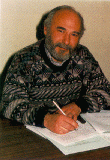Seminar 13th February 2013 4 p.m. Building 53, Room 4025, Highfield Campus
Simplicity in Practice: The Failure of Social Modelling
Professor Scott Moss
University of Koblenz-Landau
- Web page
- http://cs4southampton.wordpress.com/
- Categories
- Complex Systems
- Submitter
- Luke Goater
Mainstream economics and disciplines such as political science that have been influenced by it are bad science because they rest on theories and models that neither describe any world we can imagine ever to exist nor, unless there is no significant change or volatility, forecast accurately anything about the worlds we inhabit. Econometric models are just complicated means of extrapolation and other approaches such as dynamic stochastic general equilibrium models ignore central and dominating features of social processes, especially social interaction and influence.
The main justification for producing social models that describe worlds of fantasy is that the models are simple. Sometimes, this simplicity is justified by appeal to a distortion of Occam's Razor. In my talk, I am going to address the issue of simplicity in modelling. I will accept a dictum of Einstein that theories should be comprised by " irreducible basic elements as simple and as few as possible without having to surrender the adequate representation of a single datum of experience." The key issue here is what is meant by the clause starting "without having to surrender …."
The issue of simplicity is also important when assessing the value of applications of physical modelling approaches to social modelling coming under the heading of "complexity science". These typically do capture social interaction and, often enough, endogenous volatility but they are also very simple and there is no assessment of the extent to which they misrepresent any actual data of experience or fail to capture essential features of relevant social processes.
I will look at ways of incorporating the data of experience into social model designs and implementations; I will describe a process for determining which data of experience are to be captured in our models; I will suggest an approach to establishing measures of simplicity of models and I will demonstrate some prototype software for validating outputs from simulation models by linking them explicitly to specific data of experience.
If there is time, I will suggest how we might get from the specific, grounded theories we call models to more abstract models capturing more general statements of relationships and behaviour without doing violence to the data of experience "for the sake of simplicity".
All CS4 talks are free and refreshments will be provided from 5pm. No registration is required. For videos of previous talks and details of future talks please visit:
